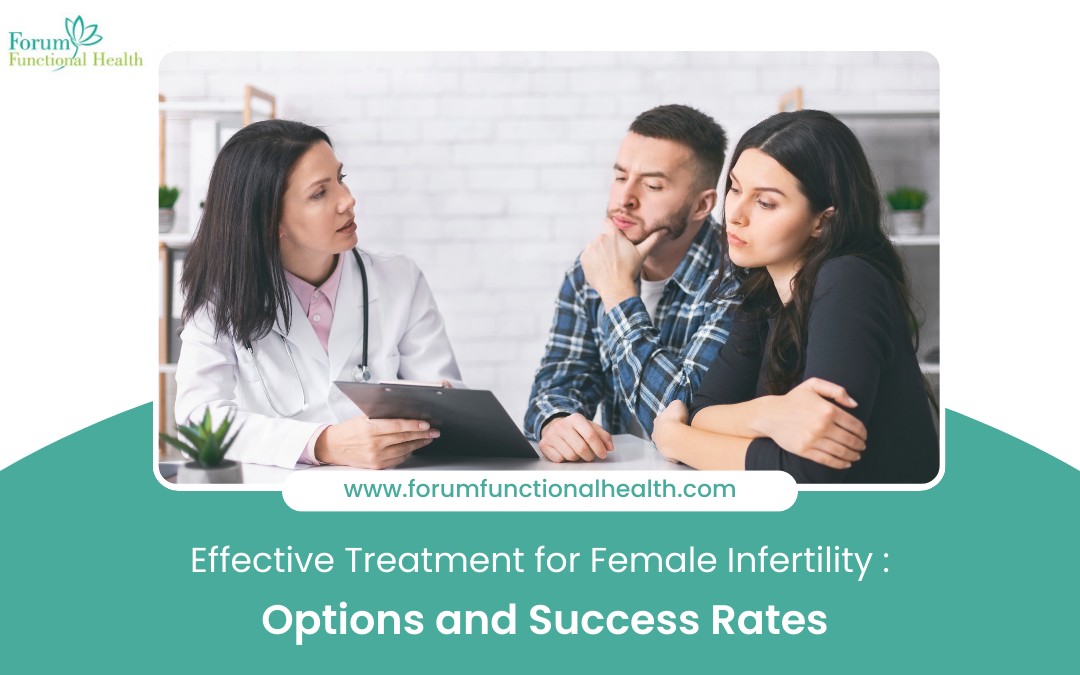Infertility is a deeply emotional journey for many women, often filled with uncertainty and longing. Fortunately, advances in medical science offer a variety of effective treatments for female infertility. Whether you’re struggling with ovulation disorders, hormonal imbalances, or conditions like PCOS, there is hope. Let’s explore the options, success rates, and how to take the first step toward building your family.
Understanding Female Infertility
Female infertility can result from several factors, including ovulation disorders, fallopian tube damage, or hormonal imbalances. One common cause is polycystic ovary syndrome (PCOS). But why does PCOS cause infertility? PCOS interferes with ovulation, leading to irregular periods and making it harder to conceive. Other causes may include endometriosis, uterine fibroids, or age-related factors.
Common Infertility Symptoms and Testing
Recognizing the signs of infertility early can improve treatment outcomes. Symptoms like irregular menstrual cycles, painful periods, or difficulty conceiving after a year of unprotected intercourse warrant medical attention.
At the Functional Health Center in Texas, we offer comprehensive infertility testing for women, including hormone evaluations and imaging studies. These tests help pinpoint the underlying cause, allowing for personalized treatment plans.
Treatment Options for Female Infertility
The right treatment depends on the cause of infertility. Here are some of the most effective methods:
1. Fertility Medicine for Female Infertility
Medications like Clomiphene, Letrozole, or injectable gonadotropins stimulate ovulation. These are often the first line of treatment for women with ovulatory disorders.
2. Lifestyle Modifications and Hormonal Therapy
Addressing lifestyle factors such as diet, exercise, and stress management can improve fertility outcomes. Hormonal therapies may also regulate cycles and improve ovulation.
3. Assisted Reproductive Technologies (ART)
Procedures like Intrauterine Insemination (IUI) and In Vitro Fertilization (IVF) have high success rates, especially for women with tubal issues or unexplained infertility. In Texas, many women find success with these advanced treatments.
4. Surgical Interventions
In cases where structural issues like fibroids or endometriosis are present, surgical correction may be necessary. Minimally invasive techniques can improve fertility and overall reproductive health.
At the Treatment for Female Infertility & Hormonal Imbalances in Texas, our specialists tailor each treatment to meet individual needs, maximizing the chances of conception.
Success Rates: What to Expect
Success rates vary depending on the treatment and individual circumstances.
- Fertility medications: Success rates range from 20% to 60%, depending on the patient’s age and underlying condition.
- IUI: Success rates range from 10% to 20% per cycle.
- IVF: Offers a success rate of 40% or higher for women under 35.
While these numbers provide a general guide, each woman’s journey is unique.
Emotional Support During Treatment
The journey through infertility treatment can be emotionally taxing. It’s crucial to build a support network of healthcare providers, family, and friends. Counseling or joining support groups can also provide comfort and resilience.
At the Forum Functional Health Center, we prioritize holistic care, addressing both physical and emotional aspects of infertility.
Take the First Step Today
If you’re struggling with infertility, remember that you’re not alone. Modern medical advancements offer a range of effective treatments tailored to your unique needs. Whether you need infertility testing for women, hormonal therapy, or advanced reproductive technologies, help is available.
Visit our Functional Health Center in Texas today and begin your journey toward parenthood with confidence and hope.
Explore More: How Long Does Ozempic Fatigue Last? Understanding the Timeline and Remedies

